The Elder Scrolls II: Daggerfall was published by Bethesda Softworks and released on September 20, 1996. It was the highly anticipated sequel to The Elder Scrolls: Arena, marking the second installment in the Elder Scrolls series.
The game’s release followed the success of its predecessor and brought a host of new features to the table.
Gameplay Evolution
Compared to Arena, Daggerfall restricted player exploration to two provinces in Tamriel: High Rock and Hammerfell. However, what it lacked in geographical diversity, it compensated for with a colossal world featuring over 15,000 cities, towns, villages, and dungeons.
The gameplay mechanics underwent a significant transformation, moving away from Arena’s experience-point based system to reward players for their use of role-playing elements within the game.
Daggerfall introduced an extensive customization system, offering an improved character generation engine and a class creation system influenced by GURPS (Generic Universal RolePlaying System).
This allowed players to craft their unique classes and assign skills as they saw fit.
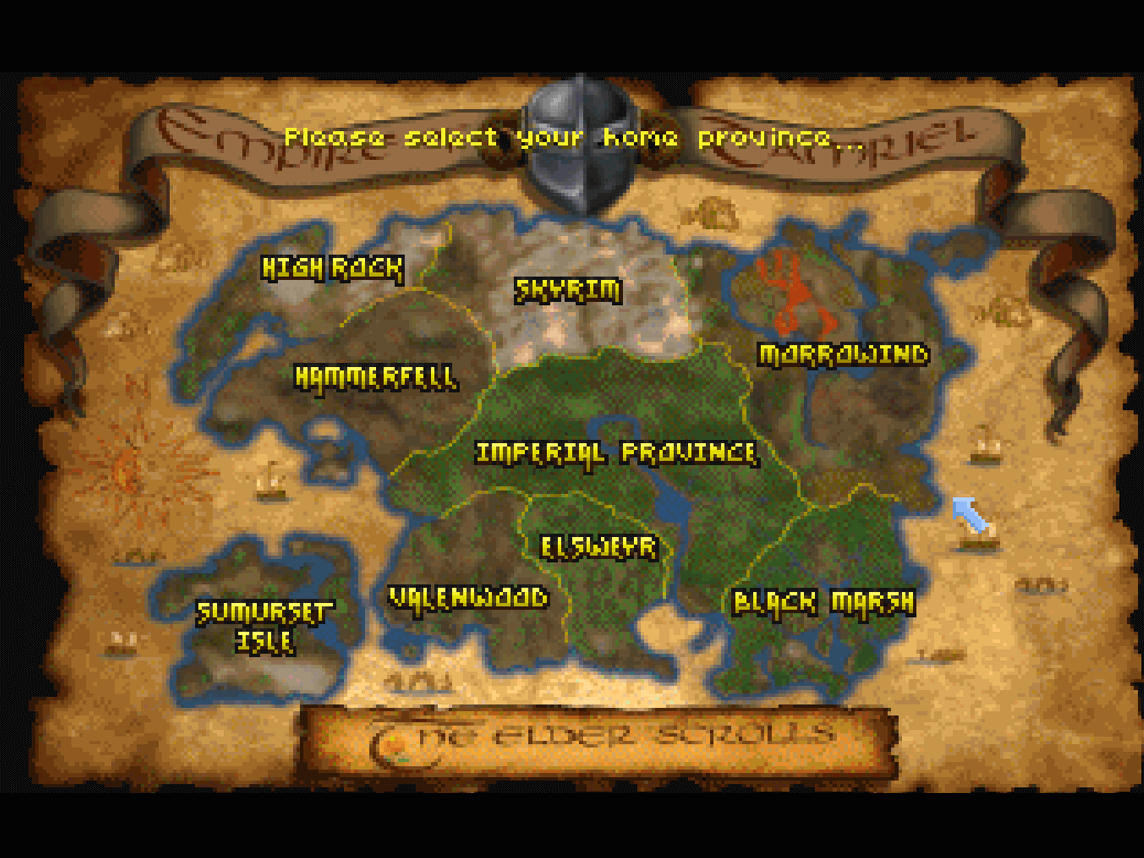
Critical and Commercial Success
Upon its release, “Daggerfall” received critical acclaim and achieved remarkable commercial success. By the year 2000, it had sold around 700,000 copies, solidifying its place in gaming history. The game’s triumph paved the way for the next installment, The Elder Scrolls III: Morrowind, which was released in 2002.
Gameplay Overview
A World of Choices
In Daggerfall, players immerse themselves in the fictional continent of Tamriel, offering access to the provinces of High Rock and Hammerfell.
Like other Elder Scrolls games, Daggerfall places no restrictions on players, allowing them to forge their path in the game’s expansive world.
Diverse Exploration
With over 15,000 locations to discover, including cities, towns, villages, and dungeons, players have a multitude of options. Whether it’s buying a house or embarking on quests, Daggerfall grants players a wealth of choices.
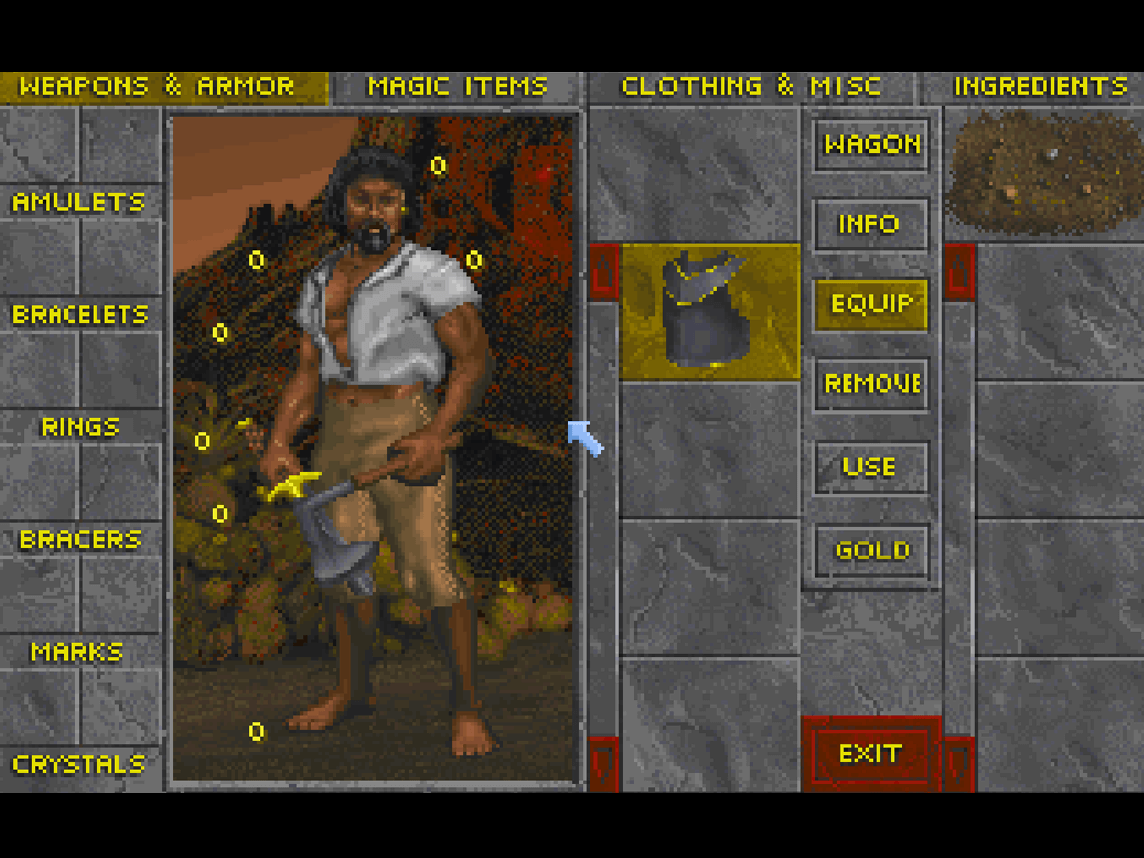
Guilds, Orders, and Religions
Players can join various guilds, orders, and religious organizations, each offering unique quests and tasks.
Participation in these groups allows players to increase their ranks and build reputations that influence interactions with non-playable characters and other factions.
Spellcasting and Enchantment
Daggerfall introduces a spell-creation system, accessible through the Mages Guild. Players can craft custom spells with varying effects, with the game automatically determining the magicka cost based on the chosen power.
Enchanting equipment is also a possibility.
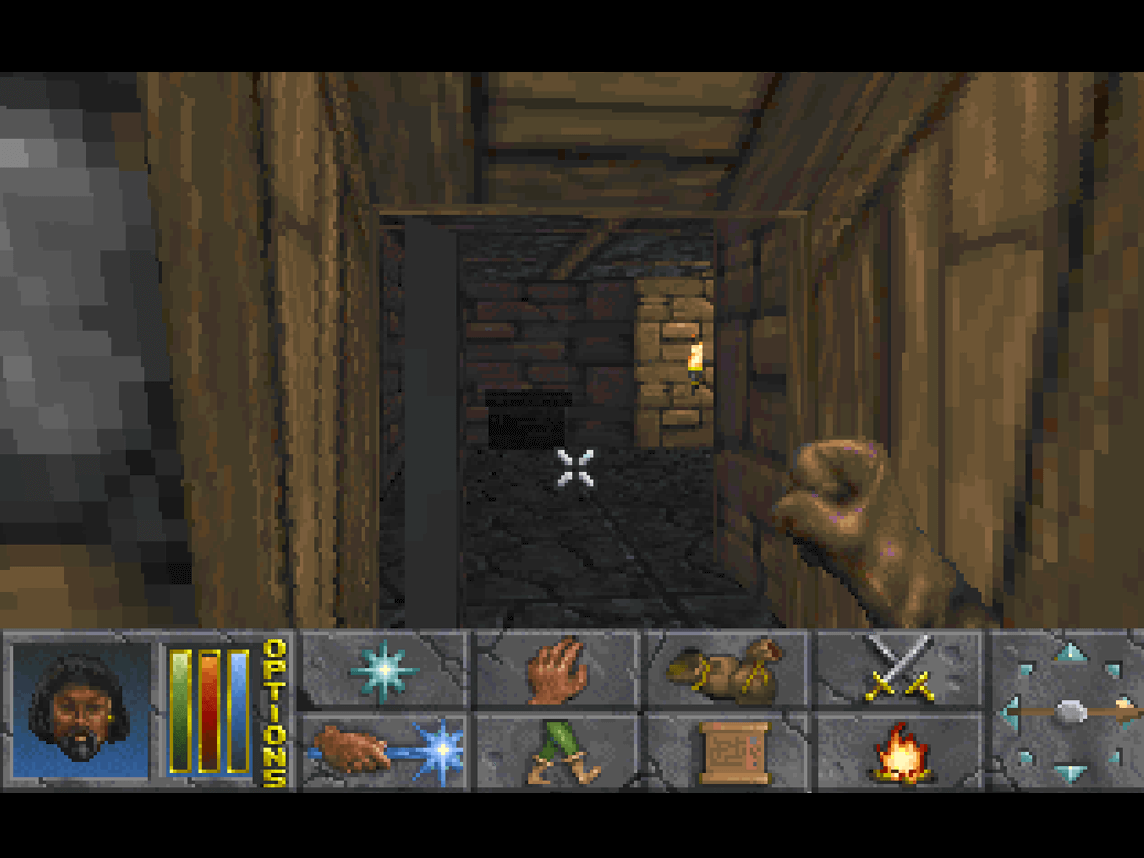
Transformations and Combat
Players can become vampires, werewolves, or wereboars, adding depth to the gameplay. The combat system uses mouse movement to determine weapon swing direction and effect in melee combat.
The game features a wide range of formidable enemies, including the powerful Daedra.
Plot
Daggerfall is set in the Iliac Bay, between High Rock and Hammerfell. The Emperor personally dispatches the player on a two-fold mission. First, the player must free the ghost of King Lysandus from his earthly chains.
Second, the player must uncover the fate of a letter from the Emperor to the former queen of Daggerfall, hinting at the Mantella’s location, a crucial element in reviving the first Numidium, a powerful brass golem.
The plot thickens with a series of events involving an orc named Gortworg, Mannimarco, the King of Worms, and the Underking. To succeed, the player must confront King Lysandus’s murderer, steal the totem of Tiber Septim from King Gothryd of Daggerfall, and liberate the Mantella from its Aetherius prison.
The player faces six diverse choices regarding the Mantella’s destiny, each leading to a unique ending.
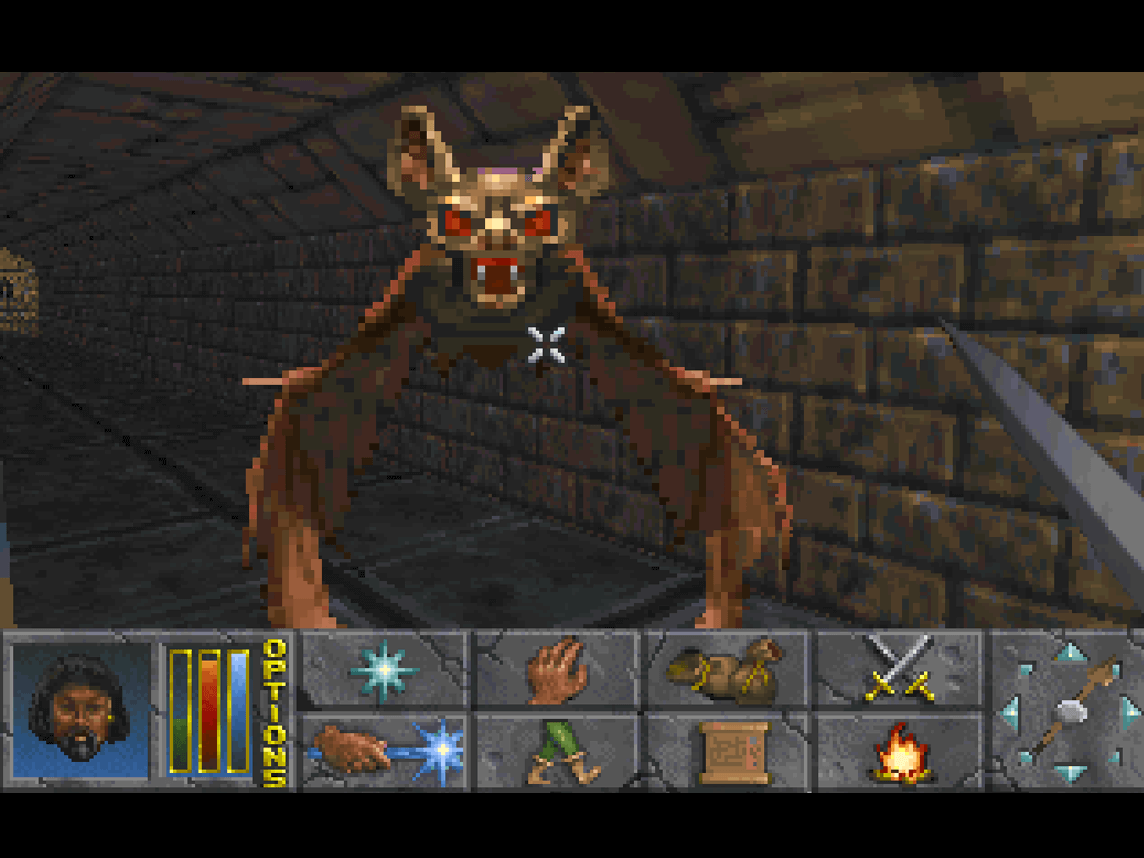
Varied Endings
Daggerfall offers multiple endings, influenced by the player’s choices:
- If the Mantella is given to the Underking, he absorbs its power and creates a magicka-free zone around himself.
- Should Gortworg emerge victorious, the Numidium is unleashed to destroy Imperial forces and the “Bay Kings,” establishing a kingdom of Orcs.
- If the Blades triumph, they recreate the first Numidium, uniting the provinces of Tamriel under the empire’s banner.
- Any Bay King victory results in the destruction of other kings, followed by the Underking’s demise.
- If Mannimarco obtains the Mantella, he ascends to godhood.
- A hidden ending exists, involving the Mantella and the totem, but it is not attainable in-game.
Conclusion
The Elder Scrolls II: Daggerfall remains a timeless classic that revolutionized open-world RPGs. Its massive world, diverse choices, and intricate plot make it a milestone in gaming history. Whether you’re new to the Elder Scrolls series or a veteran adventurer, Daggerfall promises an unforgettable journey through the continent of Tamriel.
“Embrace the power of the Elder Scrolls and shape your destiny in Tamriel.”
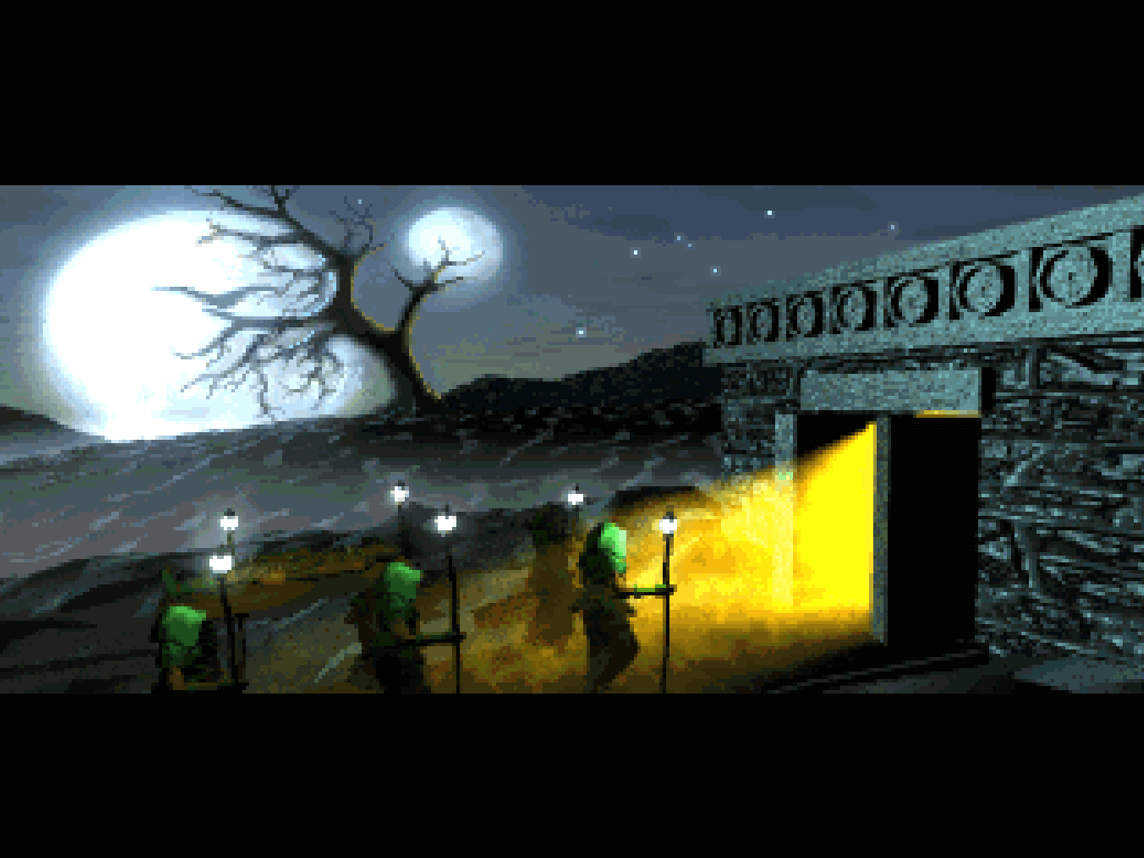
Play The Elder Scrolls: Daggerfall Onine
You can enjoy this epic adventure The Elder Scrolls: Daggerfall online on your desktop in a web browser.

